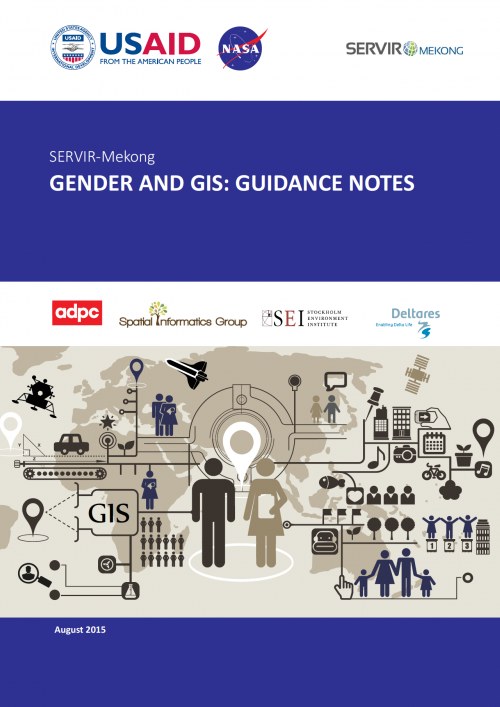
The SERVIR-Mekong program’s goal is to enhance climate change adaptation and landscape management in the Lower Mekong sub-region. The program aims to achieve this through the increased application of geospatial analysis to critical, urgent or common policy and planning needs, especially in the context of climate change adaptation, disaster risk reduction and response, Mekong basin development, water security, food security, and landscape management to reduce greenhouse gas emissions.
The Gender and GIS: Guidance Notes is targeted at geographic information system (GIS) application developers and potential application users, and intends to provide step-by-step guidance on integrating gender concerns in the production of GIS applications for environmental/natural resource management, disaster risk management and building resilience to climate change.
Specifically, the Guidance Notes aim to:
- Give detailed stepwise guidance on how to undertake a gender analysis that will inform the production of the GIS applications. It includes potential parameters and sample indicators for gender-disaggregated data collection;
- Offer practical advice on possible types and sources of gender-related data and information to integrate with GIS applications; and
- Provide examples of gender-sensitive GIS applications to demonstrate the effectiveness and potential of integrating gender with GIS technologies and the production processes.



